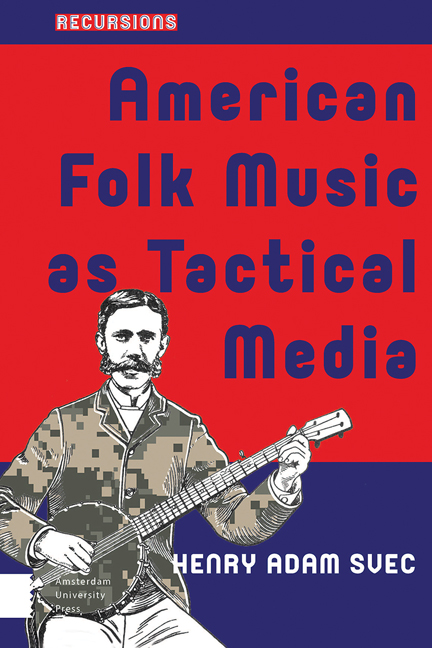Book contents
- Frontmatter
- Contents
- Acknowledgments
- Introduction
- 1 Alan Lomax’s Deep Rivers of Digitality
- 2 Pete Seeger’s Time-Biased Tactics
- 3 Bob Dylan’s Noisy Faces
- 4 A Folk Approach to Imaginary Media
- 5 Another Authentic Folk Is Possible
- 6 American Folk Music as Strategic Media
- Epilogue
- Notes
- Lyrical Credits
- References
- Index
3 - Bob Dylan’s Noisy Faces
Published online by Cambridge University Press: 28 January 2021
- Frontmatter
- Contents
- Acknowledgments
- Introduction
- 1 Alan Lomax’s Deep Rivers of Digitality
- 2 Pete Seeger’s Time-Biased Tactics
- 3 Bob Dylan’s Noisy Faces
- 4 A Folk Approach to Imaginary Media
- 5 Another Authentic Folk Is Possible
- 6 American Folk Music as Strategic Media
- Epilogue
- Notes
- Lyrical Credits
- References
- Index
Summary
‘There is nothing that is major or revolutionary except the minor. To hate all languages of masters.’
Deleuze & GuattariA group of docile, grey, passive followers are led into an auditorium wherein they are bombarded by the audiovisually induced ideology of an oppressive totalitarian society. The messages of ‘Big Brother’, projected to the masses via a cinema-sized and information-laden video interface, appear part of a vicious cycle through which their passivity is consistently reinforced. Yet, all is not lost. Into this positive feedback loop a colourful, flexible guerilla warrior bursts onto the scene, generating a symbolic disturbance within this mass-media architecture. Spinning like an Olympic athlete, she hurls a hammer (is this what Seeger had in mind?) directly into the screen. The seen-yet-unseen new revolutionary device, which the Super Bowl commercial mythologizes but does not show, is a new personal computer. ‘Macintosh: So 1984 won't be like 1984’.
The diagram of communication undergirding Apple's famous ad, and its powerful company and brand, did not materialize out of thin air. This common ‘topos’ (or recurring motif) in media history marked the Romantic movement wherein communication tools were understood as transparent, flexible apparatuses through which ‘the spontaneous overflow of powerful feelings’ of individuals, as William Wordsworth influentially put it, could be expressed. One strong, countercultural enunciation of it unfolded in July, 1965, on the main stage of the Newport Folk Festival. In opposition to a constraining scene wherein form and content had begun to ossify, a brilliant young poet with a shiny new tool (a Fender Stratocaster) stood back and apart, ripping out merely three defiant, expressive attacks: ‘Well I try my best / To be just like I am’, he sang on the first number, ‘Maggie's Farm’. Like the colourful, hammer-wielding Olympian in the Macintosh advertisement, Dylan stood above and apart, simultaneously generating a disturbance from within.
- Type
- Chapter
- Information
- American Folk Music as Tactical Media , pp. 71 - 96Publisher: Amsterdam University PressPrint publication year: 2017



